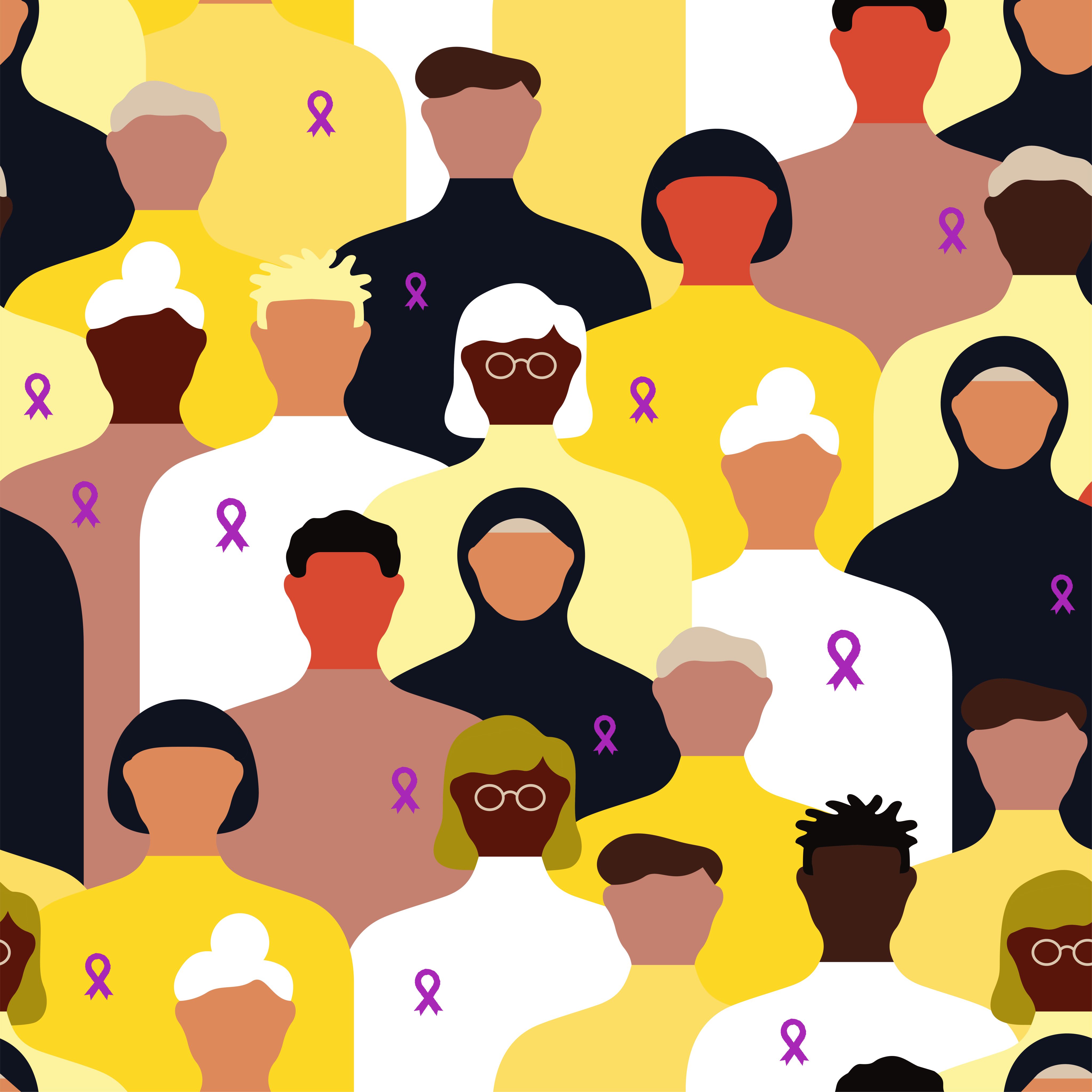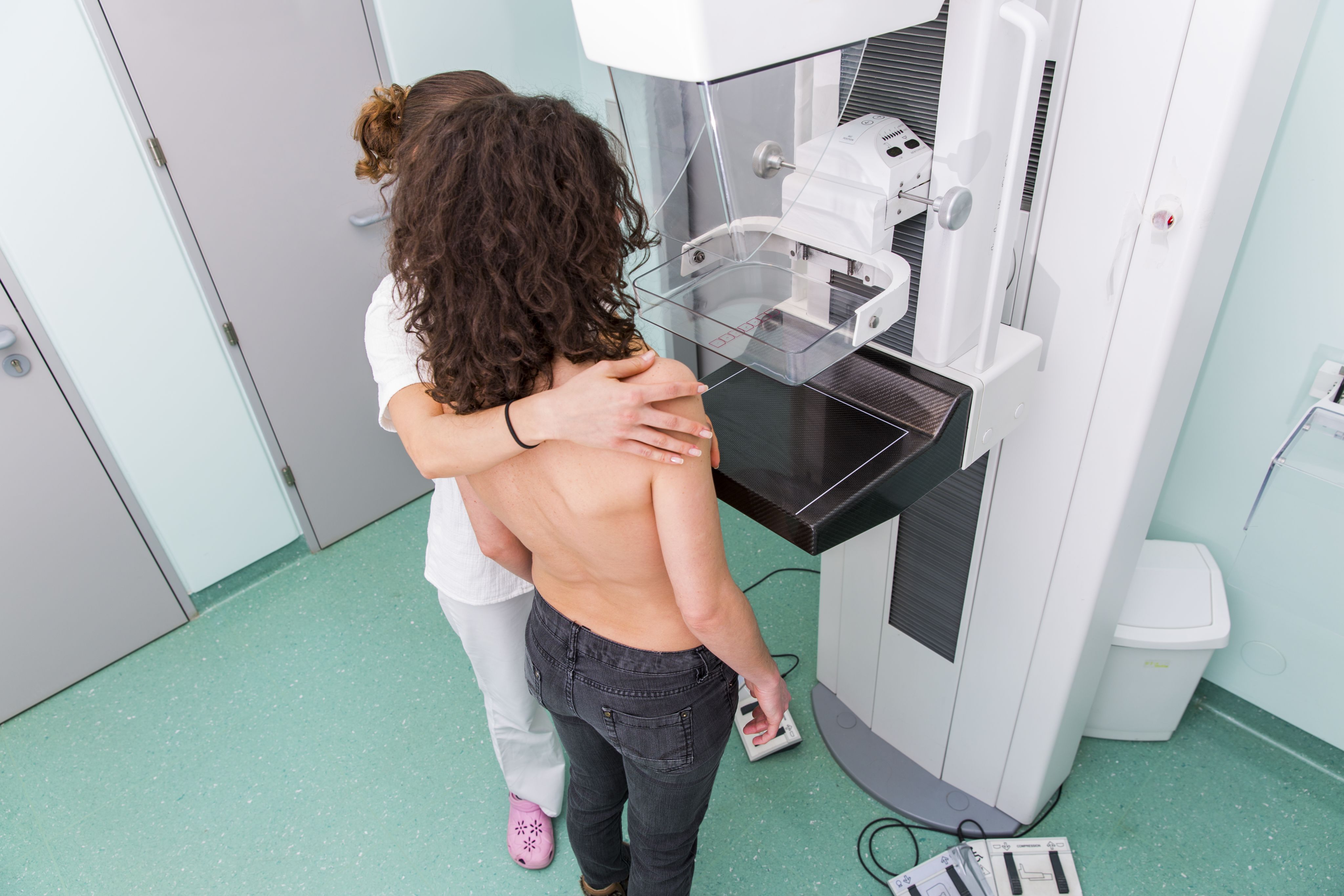
Professional
Gender inequality in breast radiology
How two radiographers transformed breast screening in their department for all genders
Through our professional practice as radiographers working in a busy breast imaging department we developed an interest in researching health inequalities, particularly in the patient barriers to breast healthcare services.
Early breast cancer diagnosis is strategic in reducing mortality and improving treatment outcomes and it is imperative our services are accessible for all.
Patients attending breast imaging clinics are predominantly female and, following negative feedback from our cisgender male patients feeling unrepresented in the service, we reflected on gender inequalities and disparities present in our healthcare setting and felt compelled to address the concerns raised.
We initially conducted a quality improvement programme to measure our imaging staff perceptions of gender equality within our breast radiology service at Maidstone and Tunbridge Wells Hospital NHS Trust, in Kent. The data analysed following this study highlighted a gap in knowledge and awareness of gender diversity, as well as disparities and inequalities in our service delivery. The need for bespoke staff training was apparent, along with several departmental changes.
Redesigning our decor
From our research we understood that a redesign of our decor was required with sensitivity towards gender diversity and gender neutrality. A neutral colour scheme replaced the traditional pink, new leaflets and posters have been displayed in our waiting areas to ensure cisgender male and gender diverse representation and information is on offer.
The imaging staff have received LGBTIQ+ awareness training to improve cultural awareness and humility with a focus on communication skills that are affirming and inclusive. All these steps are important to make sure individualised patient care can be delivered and the needs of patients are at the heart of our practice. Communication skills in particular are important to break down healthcare barriers and to deliver care without prejudice or discrimination.

New invitation pathway
During our research and discussions with NHS England, it became evident that a gap exists in the breast screening invitation formula. It was apparent that transgender men and non-binary people registered female at birth, who have breasts and are of breast screening age, are not invited due to being registered male on their GP patient records. This may also be the case with transgender females that are registered as male on their patient record.
Eligible people not invited for screening may be at risk of being diagnosed with later stage cancers when attending symptomatic clinics.
Everyone deserves the same opportunities in accessing breast imaging for the early diagnosis of breast cancer and this information led us to trial our own innovative transgender/non-binary breast screening pathway. Local GPs have been made aware of this new pathway and the phone number to call for appointments. This is how the service works:
- The client calls our breast radiology booking office to request a mammogram.
- Carefully constructed questions are asked to determine eligibility for a mammogram.
- An appropriate appointment time is created on our radiology information system under ‘self-referral’.
- Our advanced practitioner breast care nurse signs the request.
- The training that our staff have received will ensure the examination is performed with cultural humility and professionalism.
- The images will be read by two clinicians and results posted to the client.
- If a recall is required, our lead breast imaging nurse will ring the client and arrange an appropriate appointment. Our lead nurse has ensured that any forms to be used during these procedures are gender inclusive.
Close collaboration with an LGBTIQ+ cancer charity, OUTpatients (formerly ‘Live Through This’), ensured our pathway affirms dignity and value. We continue to evaluate the service to maintain quality of care and adhere to societal changes.
The drawbacks for clients attending a mammogram examination using this pathway include not receiving an invitation, not receiving an information leaflet - which is important for people to make an informed choice before attending a screening mammogram, and not having the choice to be screened in a community setting.
It is hoped, soon, that national solutions are invested in to address this gap so this cohort of people do not have to seek out their own screening mammograms and can benefit from the NHS Breast Screening Programme and the associated Right Results audit which ensures automatic invitations through to the correct result for all clients. We hope our work can be a driving force in this change.
New research project
An additional outcome demonstrated from our quality improvement programme was the recommendation to develop a research project, investigating the perceptions and lived experiences of breast imaging services, in trans and gender-diverse people. The data from this project will be thematically and statistically analysed to empower us further to improve our service guaranteeing an accessible, inclusive, and progressive service.
We conducted a literature review that highlighted the numerous healthcare disparities faced by LGBTIQ+ individuals, including stigmatisation and inequalities in healthcare environments (World Health Organization, 2023). The NHS equality objectives for 2022/23 – 2023/24 highlight the importance of LGBTQ+ inclusion and aim to improve the experience of LGBTQ+ patients and staff (NHS England and NHS Health Education England, 2022).
Our view is that future developments within this area are paramount to provide an equal and equitable service to all LGBTIQ+ patient attendees. The questions we want answering are: What can we do better? And, what needs to change? And lastly, who wants to join us?
Find out more…
Sally Harper is superintendent radiographer, breast imaging, and Clare-Marie Marsh is principal research radiographer, breast imaging, at Maidstone and Tunbridge Wells NHS Trust, Kent.
If you are interested in our work and would like to join our call for improved breast screening in transgender and gender-diverse patients, we look forward to hearing from you! We are also interested to hear from other organisations that have developed or are developing patient care protocols and pathways regarding gender equality in radiology. Contact Sally Harper at sally.harper5@nhs.net.
Image credit choja/E+/GettyImages
Now read...


